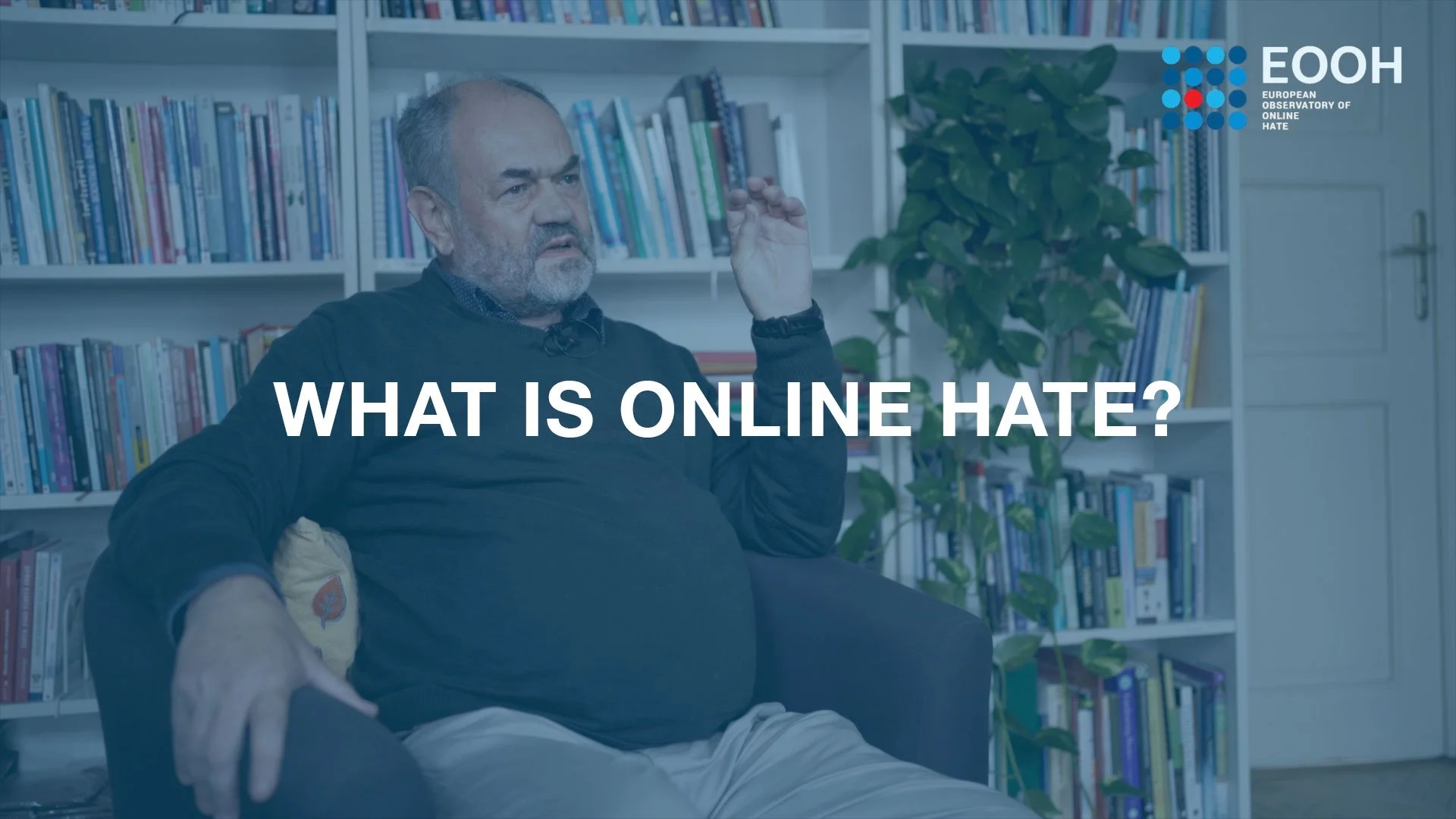What is online hate?
With hate speech on the rise, especially since the start of the pandemic, it has become clear that online hate is not without offline consequences. It has become a threat to our societies. Most of the toxicity originates from a small group of social media users who share their black-and-white worldviews with a passion, however their reach seems to be ever expanding into the offline world. EOOH will be observing, analysing and exploring solutions to online hate for the foreseeable future. To set us up properly, we asked our network of experts to share their definitions of what online hate, and hate speech, is.
Featuring: Bea Bodrogi, Brandon Oelofse, Nathalie Van Raemdonck, Dušan Ondrušek, Katarina Klingova, and Joey
Online hate speech is a major challenge for democratic societies and belongs to the most pressing digital governance issues of our days. On the one hand, actors of various kinds including governments, intermediaries and civil society cannot ignore its detrimental effects on the personal integrity of people, on targeted communities and the society as a whole. On the other hand, regulating speech constitutes a particular balancing act as democracies are built on the normative foundations of freedom of speech. In this area of tension, civil society engagement assisted by automated detection tools plays an important role.
Wolf J. Schünemann
Hate speech is a communicative act which devalues groups of people or individuals. In a narrow sense, however, hate speech only applies to communicative acts that are illegal (for example, slander, incitement to violence, sedition). It typically targets people from a different ethnic origin or religion, women, LGBTQ+, handicapped people or people who simply look different in comparison to the majority. Hate speech online often occurs on social media platforms, in the comment sections of online newspaper articles, in emails, among other areas.
Sylvia Jaki
For us, hate speech (and online hate too) is something that is in every possible way wrong. It can be harmful to an individual or to a group. It is based on the particular experience of a concrete person or group, on stereotypes rooted in social background, economical background and the educational system. Hate speech can be an oral or written statement (although it can be expressed in other forms, like drawings or memes) and its impact can be dangerous in a way possibly leading to polarisation, radicalisation, and in the end, to all crimes where bias motivation is fundamental. For law enforcement organisations, hate speech can be percepted as a simple incident not followed by criminal proceedings, but also as a very serious type of criminal offence based on the explicit hatred possibly leading to a violent act.
Hana Šebová
Hate speech destroys our societies. It is arguably one of the most dangerous challenges facing humanity in the 21st century. Antisemitism, Holocaust denial, anti-Roma and anti-Asian hate, Islamophobia, homophobia, and many other forms of evil proliferate online through countless outlets, including the main global social media platforms. Unfortunately, if hate speech goes unchecked, it results in a climate of fear and intimidation as well as physical attacks. Everybody must act to stop it.
Rafal Pankowski

